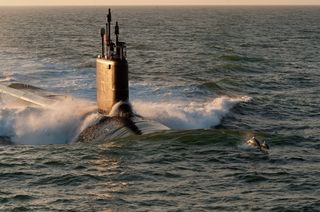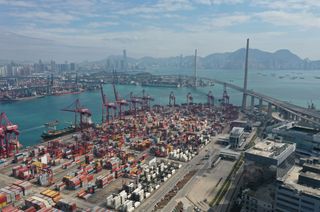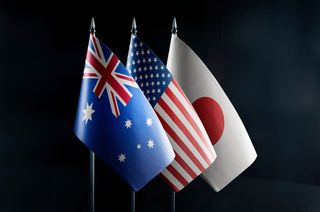The Australian
By Tom Switzer
It is “dangerously naive,” a “historic mistake”, “one of the darkest days in world history” and “the greatest appeasement since Chamberlain gave Czechoslovakia to Hitler”. As these remarks indicate, the Iran nuclear deal struck this week in Vienna has elicited a hostile response from not just Israel and US congressional Republicans but also Saudi Arabia and Arab Gulf states.
Hyperbole aside, the assertions reflect understandable concerns. After all, Iran is a radical, clerical and deeply anti-Western regime that has sponsored brutal Shia militia proxies in the Persian Gulf. Just last month the State Department reported: “Iran’s state sponsorship of terrorism worldwide remained undiminished in 2014.”
Former US secretaries of state Henry Kissinger and George Shultz — no bastions of neo-conservatism — reflect the thoughts of many when they say the deal does nothing to change the Islamic Republic’s “3½ decades of militant hostility to the West”.
And yet, all things considered, the nuclear deal is the prudent thing to do. For one thing, it is better than the alternatives. Tighter sanctions were bound to erode. Attacking Tehran would have consolidated the regime and delayed a bomb by only a few years.
There is now instead a chance of political change in Iran in coming years. And make no mistake: the younger generations of Iranians are far more progressive than their conservative elders and Sunni equivalents in the Arab world. Barack Obama’s diplomatic outreach will add more momentum to political reform. The more liberal Iran becomes, the more likely it is to emerge as a modernising influence on the region.
For another thing, the nuclear deal reflects President Obama’s attempt to ground his Middle East policy in what he sees as the emerging realities in the region. Washington and Tehran today find themselves sharing the same enemy — one equipped with a potent mix of money, tactical nous, violent religious fervour and caliphate ambitions — from eastern Syria to northwestern Iraq to North Africa.
If one believes, as most Americans and indeed Australians do, that Islamic State represents a grave and present danger, and that defeating this menace is of overriding strategic concern, then there’s a case for strengthening cooperation with Tehran and its Shia crescent of Baghdad, Damascus and southern Lebanon.
Julie Bishop, judging from her April trip to Tehran, agrees. So, too, does Obama. In December, he said he wished to see Iran ultimately become “a very successful regional power”. More recently, an anonymous US diplomat has been quoted as saying that the President believes “a peaceful Iran could be a bulwark against (Islamic State) in the Middle East and the key to peace there”.
Meanwhile, some of America’s oldest allies in the region appear to be collaborators or conscientious objectors with the enemy. Last October, Vice-President Joe Biden pointed out that Turkey, Saudi Arabia and the United Arab Emirates — all US (Sunni) allies — had provided aid and arms that initially fuelled Sunni jihadists, most notably al-Nusra Front and Islamic State in Syria. Biden later apologised, but the definition of a gaffe in Washington is when someone inadvertently tells the truth.
Think about it: Washington is trapped between two vices: a regional sectarian war between Shia and Sunni Muslims, and the intense strategic rivalry between the House of Saud and the ayatollahs in Iran. The perverse consequence, as former British ambassador to the US Christopher Meyer points out, is that we in the West are keener to defeat Islamic State than the Iraqi army and America’s Sunni allies. This is a recipe for unavoidable failure.
The critics of the nuclear deal fret that Obama has made too many concessions. He has, we are told, bargained from a position of weakness. That wasn’t the case in April 2003, when America passed up Iran’s unprecedented concessions, including working with the US towards a non-sectarian government in Baghdad and even making peace with Israel.
According to Trita Parsi in A Single Roll of the Dice, many in the State Department recognised the proposal for it was: an authentic offer for negotiations approved by the highest authorities, partly motivated by America’s strength — at that time — of successful military operations in Iraq and Afghanistan, and by Iran’s sense of vulnerability.
But vice-president Dick Cheney and defence secretary Donald Rumsfeld dismissed the offer. “We don’t speak to evil,” they argued. The hardliners in the George W. Bush administration were so confident about America’s strength, they thought they could simply dictate terms to Iran or even remove the regime in Tehran.
Now, with Obama’s Iran nuclear deal, we are witnessing “a death warrant” of what Jacob Heilbrunn, the Washington-based editor of The National Interest, has called the “hubristic foreign-policy course charted by George W. Bush and Dick Cheney”.
After the attacks of September 11, 2001, the fundamental assumption behind US foreign policy was that global problems should be solved by force in a world divided up into good guys and bad guys, and that Washington had a special mission to defeat global terrorism and remake the Middle East in its own image of democracy.
“America is an empire now,” senior Bush adviser Karl Rove boasted in August 2002, “and when we act we create our own reality.”
The region that confronts us today is not the one announced in the program and shown in the preview. Words such as “chaos”, “brutality” and “bloodshed” are freely used to describe it. Thanks to the Iraq invasion, which created a Shia Arab state for this first time, Iran’s strategic presence in the region has grown stronger while America’s power and prestige have waned.
In the wake of the Iraq, Afghanistan and Libya debacles, Obama has tried to redefine the US position in a way that reflects America’s limits and the changed circumstances in the region.
Meanwhile, if Islamic State continues to expand further in the Middle East, could Iran — the implacable foe of Sunni jihadists and Washington’s longstanding ally Saudi Arabia — really emerge as a stable and powerful strategic ally in the region?
True, the mullahs are a bunch of rabidly anti-imperialist theocrats, but they are hardly suicidal. Even Meir Dagan, the former head of Israel’s intelligence agency Mossad, concedes Tehran is “very rational”.
True, the Iranian political figures who oppose the nuclear deal would resist closer diplomatic ties with “the great Satan”. But having elected Hasan Rowhani to replace Mahmoud Ahmadinejad, Iranians are hardly hankering for the bellicose and hostile agenda of the Ahmadinejad era.
And it is true that any form of US co-operation with Tehran means forging relations with the Shia militias that have committed the most appalling human rights abuses against Sunni civilians in Iraq. Yet it is the Shia militias — not the hopeless Iraqi army that Washington and Canberra are training — that are capable of liberating Sunni strongholds from Sunni jihadists.
A more formal rapprochement with Iran would represent the mother of all U-turns. And like the nuclear deal, renormalisation of US–Iran relations would aggravate hardliners in Jerusalem and Riyadh as well as Tehran and Washington. But, as the Victorian foreign secretary Lord Palmerston once said, nations have no permanent friends or enemies, only permanent interests.
This article was originally published in The Australian




